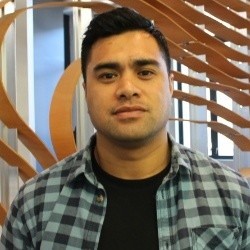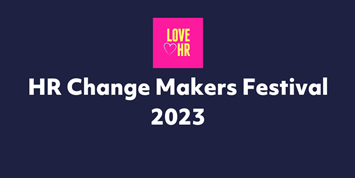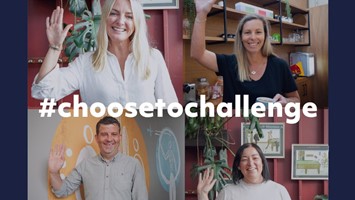Elvis Madar is the Māori & Pasifika recruitment lead at the Ministry for Primary Industries. He’s hugely passionate about lifting representation and giving Māori and Pasifika people a voice in business. Elvis shares his insight on how employers can play their part and create a welcoming workplace.

![]()
Where can businesses look to hire Pasifika people?
There are a number of places! Something I’ve done is focus on Māori and Pasifika community-based events. One of the Māori events I’ve attended recently is Te Rā o Te Raukura which is a gathering in Wellington to celebrate the local Māori talent and businesses. Myself and others from MPI held a stall there and it was an opportunity to build a relationship and engage with the local community and promote our employer brand. Government agencies have been able to secure Māori and Pasifika talent through showing their brand at these sorts of events.
We also attended Polyfest in Christchurch before Level 4, which is a fantastic opportunity to liaise with secondary school students. It’s a less formal setting so they tend to be more inclined to approach us to find out more about what we do.
There’s also an organisation called TupuToa that we partner with. TupuToa acts as a bridge between tertiary students and corporate organisations. It provides internships and pathways for Māori and Pasifika once they’ve completed tertiary studies.
What perspective do Pasifika employees bring to the workplace?
I share the same opinion as Māori Development Minister Nanaia Mahuta. She hit the nail on the head when she said it’s the ability for Māori and Pasifika to give a perspective from a cultural lens. Polynesians bring flair in the sporting arena but I think there’s flair they can bring to the corporate side of life as well. We just need to nurture those behaviours and create an environment where they can bring their whole selves to work and contribute to decision-making.
How do you create a workplace that Māori or Pasifika people want to work in, given they could be the only Māori or Pasifika person there?
In my view, some Pasifika people may face challenges day-to-day because of their cultural upbringing. For example, in my own up-bringing we didn’t really speak unless we’re spoken to. Employers would need to create an environment where we can have a voice and feel included in decision-making. One-on-one sessions may allow us to be more open and transparent rather than group discussions and then acknowledging Pasifika people for their input/insights.
Another way is to lift representation. Get more Māori and Pasifika people around the table so that we do feel like we have a voice and a seat at the table in terms of decision-making. We have staff-led network groups at MPI, which include the Rainbow community, women in leadership, Māori and Pasifika.
How can employers make sure Pasifika employees’ voices are heard and culture respected, while avoiding tokenism or box ticking?
It would be much easier if more people actively tried to lift their own knowledge and understanding of tikanga (Māori customary practices or behaviours).
Make sure you’re not just relying on that one source/employee to do the work when it comes to cultural capability. All staff should constantly want to learn and lift their own capability as well.
It’s key that you show you want to learn more and engage more, while also sharing what you’ve learned with others. Asking others inside or outside the business within those areas, that’s how you get the balance.
Who is doing it well?
In my opinion, the Ministry of Business, Innovation and Employment (MBIE)! They have a Māori relationship manager and invested money and time into driving this mahi across their organisation. Not only do they look and feel culturally inclusive, they’ve got good stats that show it for Māori and Pasifika.





